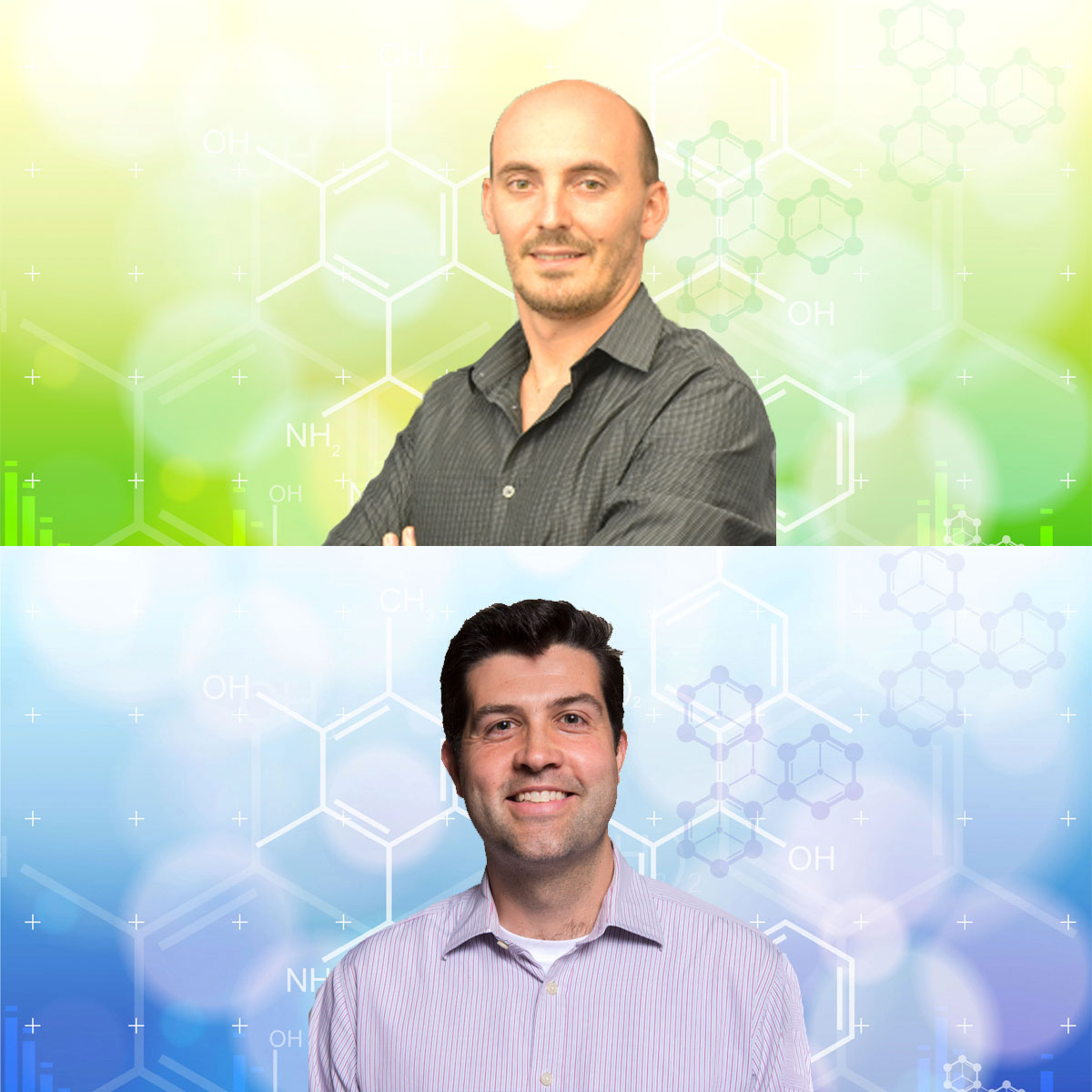Posted on November 4, 2021 by College of Sciences

Nicolas Large, Ph.D., Department of Physics and Astronomy
Zachary Tonzetich, Ph.D., Department of Chemistry
Dr. Nicolas Large, assistant professor from the Department of Physics and Astronomy, and Dr. Zachary Tonzetich, associate professor from the Department of Chemistry, are collaborating with the University of Rochester on a $1.8M multi-institutional research project from the National Science Foundation that could unlock new discoveries in chemistry.
Large and Tonzetich are working with a team of researchers from The Center for Quantum Electrodynamics for Selective Transformations (QuEST), to utilize light as a catalyst to create new chemical reactions that were previously thought impossible.
"These achievements will represent a true paradigm shift in chemical synthesis, with a broad transformative impact in all aspects of our society from pharmaceutical and food industries to energy and sustainability," said Large.
QuEST is one of the highly competitive NSF-funded Centers for Chemical Innovation (CCI), and is currently in Phase 1, which includes three years of funding. The guiding principle of QuEST is to develop a new method to alter the reaction selectivity that is based on quantum phenomena, and enable chemical transformations that are not currently possible.
Large obtained a dual Ph.D. degree in Nanophysics from the University of Toulouse in France and the University of the Basque Country in Spain in 2011. He was hired by UTSA in 2016 and is currently undergoing his tenure review. Large was recently involved in a research project by the Army Research Office to investigate the fundamental optical and photothermal properties of hybrid nanomaterials, which holds practical applications in cancer photothermal therapy and high-density data storage devices.
Tonzetich received his Ph.D. in Inorganic Chemistry from MIT in 2007 and remained there to complete his postdoc before joining UTSA in 2010. Tonzetich's research focuses on synthetic inorganic chemistry with applications in biology and homogeneous catalysis. His current major research emphasis is on the catalytic mechanisms of earth-abundant transition metals. This project is primarily funded by the Welch Foundation and examines the roles that metal ions play in important organic reactions such as hydrogenation and hydroboration.
"Our expertise in theoretical nanophotonics and catalysis is what we bring to the QuEST team," said Tonzetich. "We are excited to be a part of this research initiative and look forward to advancing science in the areas of chemistry and quantum electrodynamics."

